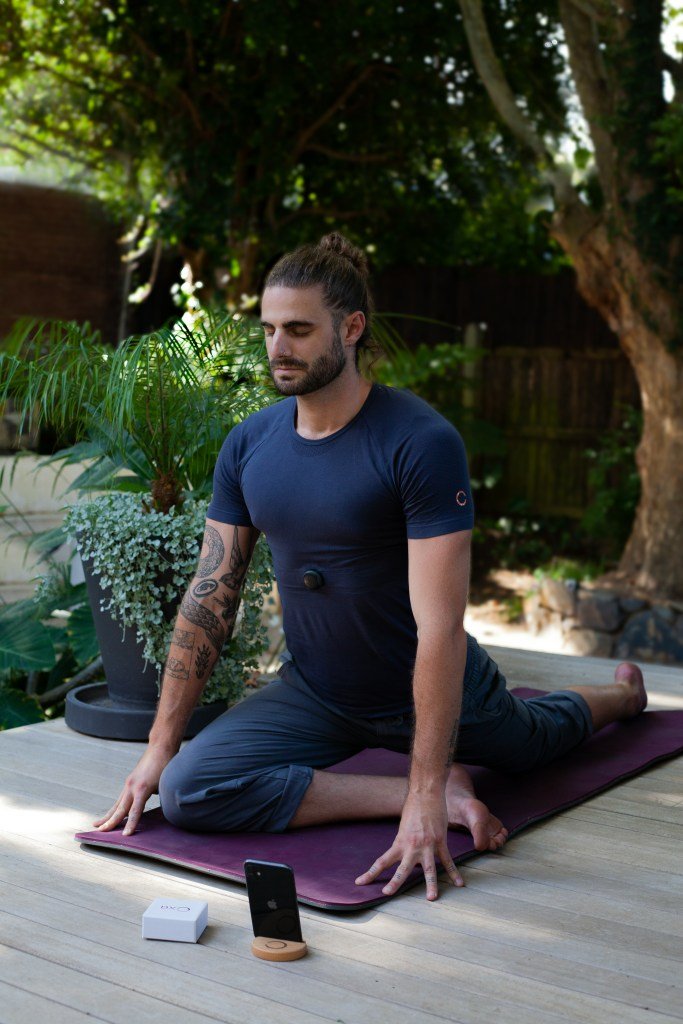Author: Jolian Ardolino
(image: Unsplash: Angelina Sarycheva)
If you’re reading this, you likely know what it’s like to care deeply for others – whether as a nurse, paramedic, therapist, social worker, or in one of the many roles that keep our communities going. But here’s something we don’t say out loud enough: caring for others can quietly take its toll on our own wellbeing, especially when it comes to health anxiety.
The Hidden Weight of Health Anxiety in Caring Professions
Caring professionals are often assumed to be unshakeable in a crisis – the calm in the storm, the voice of reason when others are spiralling. But what happens when your own mind starts to race? When a fleeting ache becomes a late-night Google search, and that spirals into a restless night? Or when the stories you hear at work bleed into fears about your own health or loved ones?
Health anxiety isn’t “just worrying” or “hypochondria.” It’s a very real, common challenge for those who look after others. NHS surveys found 76% of staff experienced a mental health issue last year, with over half reporting anxiety. We absorb others’ pain and witness uncertainty, sometimes internalising that anxiety until it shapes our own thoughts and behaviours.
Why Caring Professionals Are Prone to Health Anxiety
Caring roles put us face-to-face with illness, unpredictability, and loss. We’re trained to scan for problems – a strength that can turn inward, fuelling cycles of health anxiety. Many of us are also experts at minimising our own needs. My clients (and yes, I’ve been there myself) often struggle to switch off “helper mode” and create space for their own wellbeing. No wonder health anxiety can creep in.
Recognising the Signs
Health anxiety can show up in subtle – and not-so-subtle – ways:
– Excessive checking: Monitoring your body for symptoms, repeatedly seeking reassurance, or going down “Dr Google” rabbit holes.
– Preoccupation: Struggling to focus on anything but health worries, even outside work.
– Avoidance: Steering clear of situations or tasks for fear of illness.
– Physical symptoms: Real sensations (like palpitations, headaches, or stomach issues) that reinforce anxious thoughts.
– Sleep disturbance: Lying awake, unable to switch off your mind.
My Integrative Approach: You’re Not Alone
As a therapist specialising in anxiety, stress, and burnout among caring professionals, I understand the unique pressures you face – not just as a therapist, but as someone who’s walked in your shoes. At Ardolino Counselling, my approach combines:
– CBT (Cognitive Behavioural Therapy): We map the cycle of anxious thoughts and behaviours, learning practical ways to break free from unhelpful patterns. CBT helps you question catastrophic thinking and gently test healthier beliefs.
– ACT (Acceptance and Commitment Therapy): We work on making space for uncertainty, learning to “unhook” from distressing thoughts, and focusing on what really matters – without trying to eliminate anxiety altogether.
– Person-centred therapy: All our work is grounded in compassion, empathy, and respect for your unique story and strengths.
It’s not about “fixing” you – it’s about working together so you can keep doing the work you care about, without being overwhelmed.

Image: Unsplash: Tim Mossholder)
Practical Tips: Coping Day-to-Day
1. Challenge Catastrophic Thinking
When a health worry pops up, pause and ask: “What’s the evidence for this thought? Am I assuming the worst?” Label these as “catastrophic thoughts,” and consider: “What’s a more balanced or likely explanation?” Notice how believable the new thought feels and how you might behave differently if you believed it.
2. Ground Yourself in the Present
When anxiety spirals, try grounding techniques like box breathing or the “5-4-3-2-1” exercise: name five things you can see, four you can touch, three you can hear, two you can smell, and one you can taste. This anchors you in the here and now.
3. Limit Reassurance and ‘Dr Google’
Notice when you’re seeking reassurance – asking colleagues, Googling symptoms, or scanning your body. Set gentle limits on these habits, reminding yourself: “Uncertainty is uncomfortable, but I can handle it.” Reducing reassurance-seeking helps break the anxiety cycle.
4. Set Boundaries to Protect Your Energy
Give yourself permission to say no, or to step back from work worries outside your shift. Small routines – like a walk after work or a tech-free hour – help reinforce this boundary and support your wellbeing.
5. Reach Out for Support
If anxiety persists, talking things through with a trusted friend, colleague, or therapist can give you perspective and relief. You don’t have to manage it alone.
When to Reach Out
Everyone experiences worry sometimes. But it’s worth seeking help if:
– Health anxiety is interfering with your work, relationships, or daily life.
– You’re finding it hard to “switch off,” even away from work.
– You’re avoiding situations or tasks because of health fears.
– Your anxiety is getting worse, not better, over time.
Mental health struggles are common and nothing to be ashamed of. Reaching out isn’t a sign of weakness – it’s a step towards regaining balance and resilience. Many caring professionals find that talking to someone outside their immediate work circle helps them process fears and develop healthier ways of coping.
Ready for Real Change?
If health anxiety is making it harder to do the job you love, you deserve support tailored to you as a caring professional. At Ardolino Counselling, I offer a free, no-pressure 15-minute consultation to see if therapy feels right for you. Sessions are available UK-wide (online or in Barry, South Wales) with flexible scheduling, including Fridays, evenings, and weekends.
Special Blue Light Card Offer:
Blue Light Card holders receive 50% off their first 8 sessions. Block bookings are also available for added savings.
You give so much care and skill to others. Let’s make sure you get the same support in return.
Book your free consultation here and take the first step towards a calmer, more confident you.
This post contains a sponsored link and was written by Jolian Ardolino, therapist.



